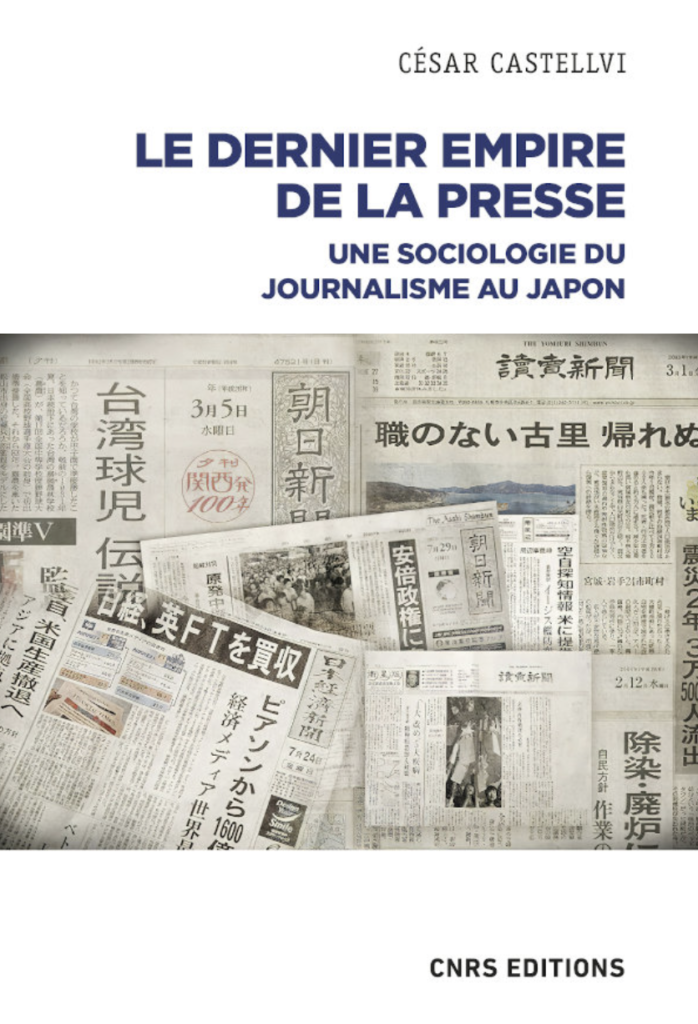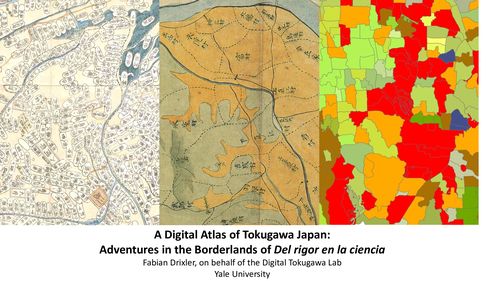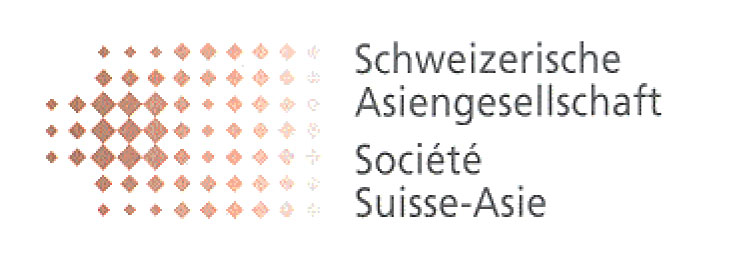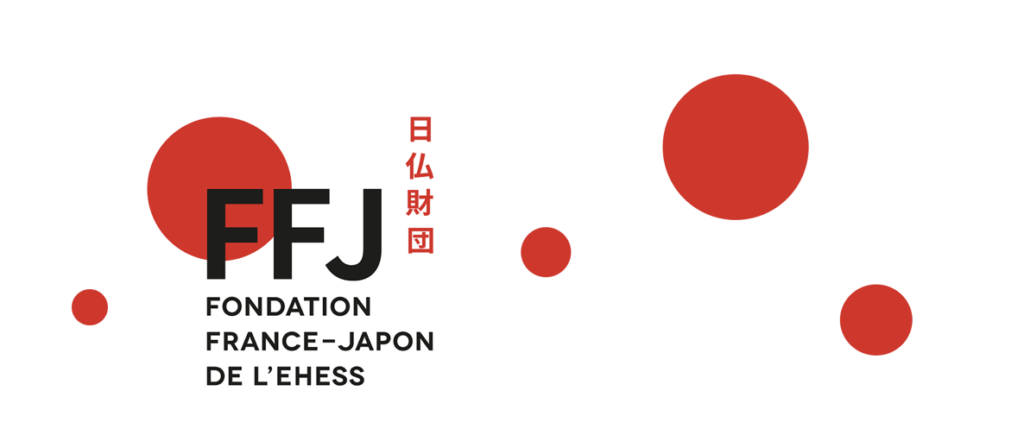Appel à communications
Colloque en études japonaises de la SAG : « Frontières, seuils, barrières »
6 et 7 juin 2022, Université de Genève
Comité scientifique : Claire-Akiko Brisset (U. Genève), David Chiavacci (U. Zurich) et Raji Steineck (U. Zurich)
« Notre société trouve son origine dans un monde qui se fixe une limite […]. » (Nishida Kitarō, Sur le problème de la raison d’État)
« Quand le vent d’automne / fait disparaître / la rosée des herbes et des arbres / tu franchis la barrière Seigneur / et nul garde ne t’arrête » 秋風に草木の露をば払はせ て君が越ゆれば関守も無し (Kajiwara no Kagesue à Minamoto no Yoritomo)
La Société Suisse Asie (Schweizerische Asiengesellschaft, SAG) lance un appel à communications pour sa première conférence en études japonaises sur le thème « Frontières, seuils, barrières ». L’appel s’adresse aux chercheurs et chercheuses venu-es de toutes les disciplines dans ce domaine, en particulier les profils juniors, du doctorat au professorat associé.
Les frontières, les seuils, les barrières ont de nombreuses significations: sociales, littéraires, politiques, philosophiques, économiques, religieuses. Les mouvements s’y arrêtent ou en partent, se voient ralentis, détournés ou franchis ; les développements s’interrompent ou entrent dans une nouvelle phase, certains involontairement, d’autres consciemment accompagnés et amenés à une certaine configuration. Les frontières peuvent être trouvées, mais le plus souvent elles sont fixées : les seuils et les barrières au sens littéral constituent de telles conceptions des frontières, elles sont censées être franchissables, mais aussi restreindre le mouvement, pour permettre son contrôle et sa régulation.
Les frontières, les seuils, les barrières offrent donc aussi des lieux et des occasions de faire une pause, de réfléchir et d’exprimer ce qu’est le mouvement ou sa prévention, ou encore l’espace qui s’y trouve inclus ou exclu ainsi que ses possibles.
Des politiques portant sur la santé publique, la migration et l’économie à la poésie, de l’anthropologie à l’histoire de l’architecture et des représentations figurées, ces thèmes peuvent être abordés de manière très différente, ces approches proposant de multiples interactions.
Ce colloque, qui se veut une tentative de surmonter les barrières linguistiques ainsi que les limites disciplinaires et méthodologiques, souhaite explorer les différences d’approche de cette thématique ainsi que leurs interrelations, voire leur complémentarité, et faire apparaître de nouvelles connexions au cours de ce dialogue. Nous prévoyons des exposés de 30 mn et une discussion de 15 min. La conférence est multilingue. La langue de la présentation peut être l’allemand, l’anglais, le français, l’italien ou le japonais, avec un résumé et un diaporama dans une autre des langues mentionnées. Les communications pourront servir de point de départ à un article soumis à la revue Asiatische Studien / Études Asiatiques :
https://www.degruyter.com/journal/key/asia/html
Calendrier :
– 15 janvier 2022 : lancement de l’appel à candidature
– 15 mars 2022 : date-limite pour l’envoi des candidatures
Les propositions de communication devront comporter un titre, un résumé (250 mots), ainsi qu’une courte présentation du / de la candidat-e.
Les propositions seront à adresser par mail à :
– Claire-Akiko Brisset : claire-akiko.brisset@unige.ch – David Chiavacci : david.chiavacci@aoi.uzh.ch
– Raji Steineck : raji.steineck@aoi.uzh.ch
Appel à communications à télécharger ici.
Call for proposals
1st Swiss Asia Society Japan Workshop “Borders, Thresholds, Barriers”, June 6-7, 2022, University of Geneva
Organization: Claire-Akiko Brisset (U. Geneva), David Chiavacci (U. Zurich), Raji Steineck (U. Zurich)
“Our society has its origin in the world setting a limit for itself […]” (Nishida Kitarō, “On the Problem of the Reason of State”).
“Before the autumn wind fades / Dew from grass and tree / Prince, when you cross over / No barrier guard keeps watch” 秋風に草木の露をば払はせて君が越ゆれば 関守も無し (Kajiwara no Kagesue to Minamoto no Yoritomo)
The Swiss Asia Society (SAG) invites proposals for its first Japan workshop on the theme “Borders, Thresholds, Barriers.” The call is addressed to researchers from all fields of Japanese studies, especially at the earlier stages of the academic career from PhD to assistant professorship.
Borders, thresholds, barriers have multiple meanings: social, literary, political, philosophical, economic, religious. Movements come to a halt at them or start from them, are slowed down, diverted, or break through; developments peter out or enter a new phase, some involuntarily, others consciously accompanied and brought into a certain form. Boundaries can be found, but more often they are set. Thresholds and barriers in the literal sense are such designs of boundaries, they should be passable, but also restrict movement, enable their monitoring and regulation. Borders, thresholds, and barriers are also locations and occasions for pausing, reflecting, and expressing what is at stake in the movement or its prevention, or even the space that is included or excluded and its possibilities.
Borders, thresholds, and barriers are the subject of discussion in fields from migration and economic policy to poetry, from anthropology to art history, and gained new salience recently as matters of public health.
Our workshop, itself an attempt to overcome language barriers as well as the boundaries of different research fields and methods, would like to explore the differences as well as their interrelationships and thereby create new connections. We plan papers of 30 minutes and 15 minutes of discussion. The conference is multilingual. The language of the presentation can be English, French, German, Italian or Japanese. A presentation in a second of the mentioned languages should be provided. Papers may serve as the basis for an article in the journal Asiatische Studien / Études Asiatiques: https://www.degruyter.com/journal/key/asia/html
Timeline :
– January 15, 2022: publication of the call for papers
– March 15, 2022: deadline for proposals
Proposals should consist of a title, a summary (250 words), and a brief information concerning the presenter.
Please send proposals to:
– Claire-Akiko Brisset : claire-akiko.brisset@unige.ch – David Chiavacci : david.chiavacci@aoi.uzh.ch
– Raji Steineck : raji.steineck@aoi.uzh.ch
Aufruf zur Einsendung von Vorschlägen für Referate
Tagung für Japanologie der SAG «Grenzen, Schwellen, Schranken», 6. und 7. Juni 2022, Universität Genf
Organisation: Claire-Akiko Brisset (U. Genf), David Chiavacci (U. Zürich) und Raji Steineck (U. Zürich)
«Unsere Gesellschaft hat ihren Ursprung darin, dass die Welt sich selbst eine Grenze setzt […]» (Nishida Kitarō, «Zum Problem der Staatsräson»)
«Vor dem Herbstwind schwindet / Tau von Gras und Baum / Fürst, wenn Du hinübersetzt / hält keiner Schranke Wacht» 秋風に草木の露をば払はせて君が越 ゆれば関守も無し (Kajiwara no Kagesue auf Minamoto no Yoritomo)
Die Schweizerische Asiengesellschaft (SAG) lädt ein zur Einreichung von Vorschlägen für Referate auf ihrer ersten Tagung für Japanologie zum Thema «Grenzen, Schwellen, Schranken». Der Aufruf richtet sich an Forschende aus allen Gebieten des Fachs, insbesondere auf den früheren Stufen der wissenschaftlichen Laufbahn vom Doktorat bis zur Assistenzprofessur.
Grenzen, Schwellen, Schranken haben vielfältige Bedeutung: soziale, literarische, politische, philosophische, ökonomische, religiöse. Bewegungen kommen an ihnen zu stehen oder gehen von ihnen aus, werden gebremst, umgelenkt, oder brechen durch; Entwicklungen versanden oder treten in eine neue Phase ein, manche unwillkürlich, andere bewusst begleitet und in eine bestimmte Form gebracht. Grenzen können vorgefunden sein, öfters aber werden sie gesetzt: Schwellen und Schranken im wörtlichen Sinne sind solche Gestaltungen von Grenzen, sie sollen passierbar sein, Bewegung aber auch einschränken, ihre Überwachung und Regulierung ermöglichen. Grenzen, Schwellen, Schranken sind damit auch Orte und Anlässe des Innehaltens, der Reflexion und Expression dessen, worum es in der Bewegung oder ihrer Verhinderung geht, beziehungsweise des ein- wie ausgegrenzten Raumes und seiner Möglichkeiten.
Von der Gesundheits-, Migrations- und Wirtschaftspolitik bis zur Lyrik, von der Anthropologie bis zur Architektur- und Kunstgeschichte werden sie auf sehr unterschiedliche Weise thematisiert, und weisen darin doch vielfältige Wechselbezüge auf.
Unsere Tagung, selbst ein Versuch, Sprachschranken wie die Grenzen verschiedener Forschungsgebiete und -methoden zu überwinden, möchte den Differenzen wie ihren Wechselbezügen nachgehen und dabei neue Verbindungen schaffen. Wir planen Referate mit einer Länge von 30 Minuten und 15 Minuten Diskussion. Die Tagung ist multilingual. Die Sprache des Vortrags kann Deutsch, Englisch, Französisch, Italienisch oder Japanisch sein, es sollte dabei eine Präsentation in einer zweiten der genannten Sprachen zur Verfügung gestellt werden. Die Beiträge können als Grundlage für einen Artikel in der Zeitschrift Asiatische Studien / Études Asiatiques dienen:
https://www.degruyter.com/journal/key/asia/html
Ablauf :
– 15 Januar 2022: Veröffentlichung des Aufrufs zur Einreichung von Beiträgen – 15 März 2022: (letzter) Termin für die Einreichung von Beiträgen
Beitragsvorschläge sollen einen Titel, eine Zusammenfassung (250 Wörter) und eine kurze Vorstellung der Referentin/des Referenten enthalten.
Bitte senden Sie Ihren Vorschlag per Mail an:
– Claire-Akiko Brisset : claire-akiko.brisset@unige.ch – David Chiavacci : david.chiavacci@aoi.uzh.ch
– Raji Steineck : raji.steineck@aoi.uzh.ch









